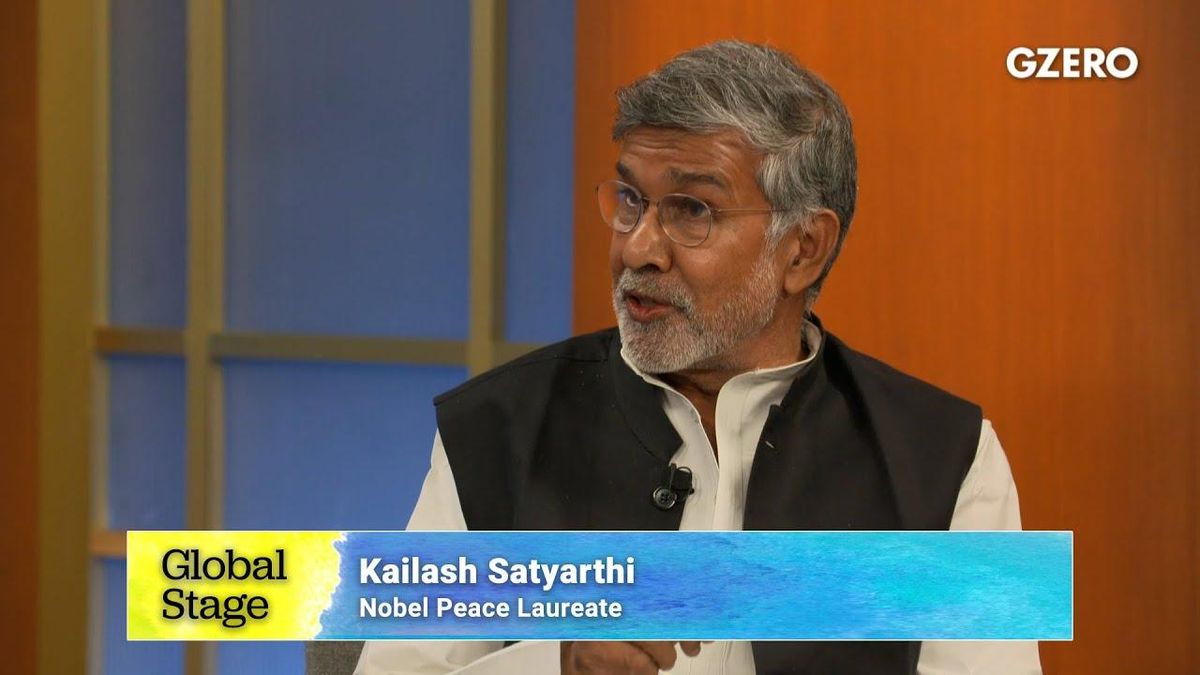The pandemic not only took kids out of school. It also pushed many into the workforce.
COVID raised the demand for children as the cheapest source of labor, Nobel laureate and human rights campaigner Kailash Satyarthi says during a Global Stage livestream conversation. Indeed, it's the first team we're going back on meeting the UN Sustainable Development Goal No. 8 target on ending child labor.
What's more, Satyarthi explains that 160 million child laborers translate to 160 million empty seats in classrooms — and to 160 million jobs that kids will now perform instead of adults.
"It's a waste of human potential in so many ways."

















